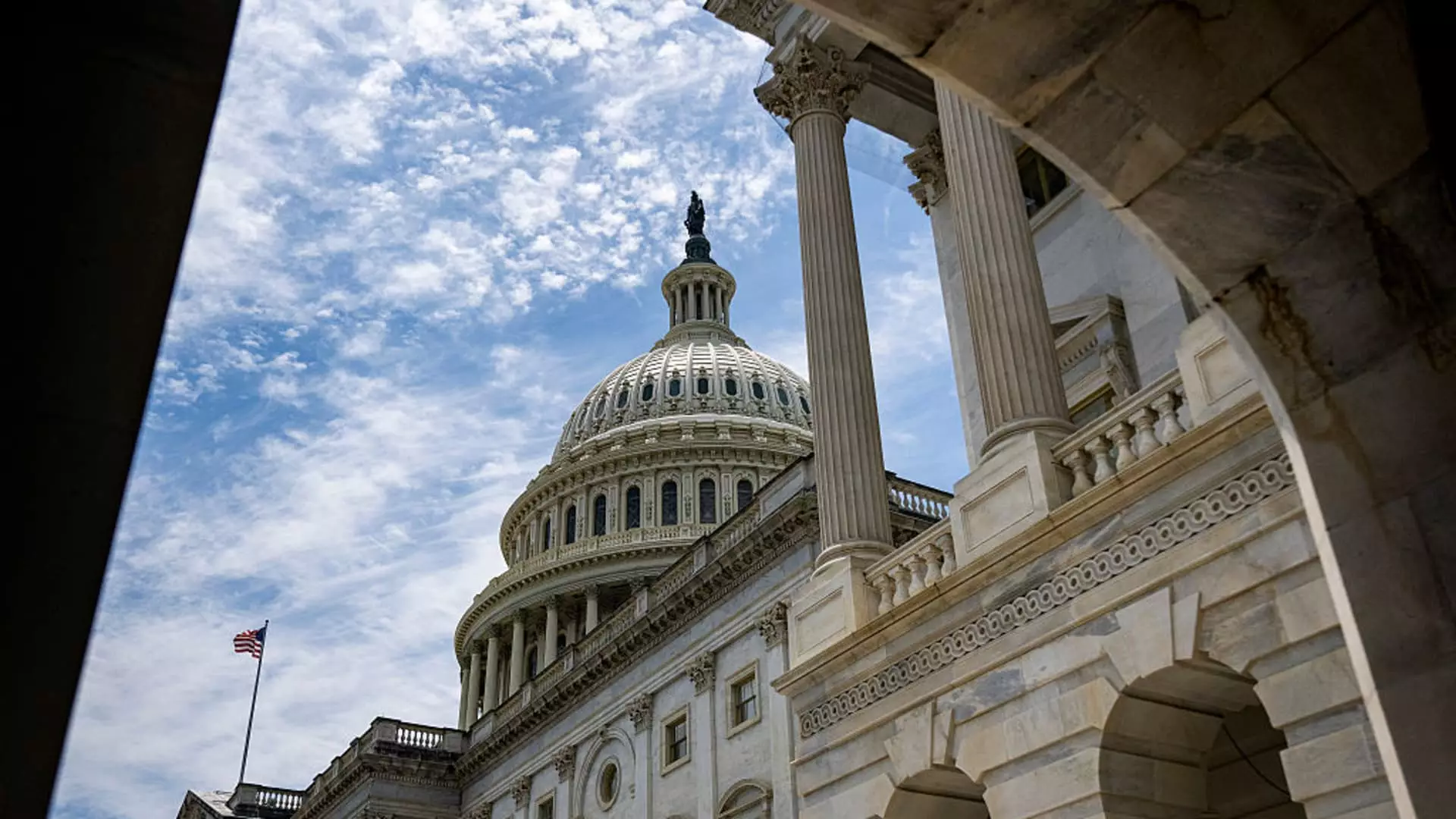The recent legislative push, often heralded as a landmark reform, in reality cements the privileges of the wealthy while offering only hollow benefits to the broader population. The so-called “big beautiful bill,” cloaked in promises of economic growth and fairness, ultimately serves as a playing field where economic inequality deepens instead of diminishes. It is a classic case of policy skewed overwhelmingly in favor of high earners, with no genuine effort to address the broader societal needs or promote equitable growth. The extension of the 2017 tax cuts, coupled with new breaks that disproportionately benefit those at the top, exemplifies a government collaboratively entrenching a rigged system that favors the few at the expense of the many.
Tax experts and policymakers alike have identified that billionaires and millionaires stand to see significant increases in their after-tax income—up to 3%, translating to hundreds of thousands of dollars more in their pockets annually. Meanwhile, the median American family continues to grapple with stagnant wages, rising living costs, and a tax code that actively favors the already privileged. This gap, which is wide enough to swallow entire communities’ aspirations of upward mobility, is systematically widened by policies that extend preferred treatments to investors, estate heirs, and high-income professionals. That this bill reinforces these disparities, rather than challenges them, reflects a blatant betrayal of the democratic principle that taxation should be a tool for social justice and shared prosperity.
Loopholes, Loopholes, Everywhere: Exploiting the System for the Wealthy’s Advantage
What is truly alarming in this legislation is its complex web of loopholes and workarounds suited for the wealthy elite. The retention and even amplification of the pass-through entity tax loophole allows high-income earners—lawyers, doctors, business owners—to sidestep the intent of SALT deductions entirely. Instead of closing these gaps, the bill empowers the rich to manipulate the system further, effectively making the tax code a playground for strategic tax planning rather than a mechanism for equitable contribution.
Further, the extension of the Qualified Small Business Stock (QSBS) benefits elevates the status of entrepreneurial investments that are predominantly accessible to ultra-wealthy investors and corporations, not the average citizen. Raising asset thresholds and increasing exemptions serve only to reinforce the class divide, incentivizing high-net-worth individuals to funnel money into small-business ventures that provide maximum tax relief. It’s a system that rewards financial engineering at its finest, while leaving ordinary workers to shoulder the burden of public funding and social services.
This pattern of policy design exposes a fundamental flaw: the prioritization of wealth retention and acquisition over societal sustainability. Instead of implementing progressive reforms that could tax wealth more fairly or close loopholes that facilitate tax avoidance, the bill doubles down on provisions that secure the already affluent’s privileged status. Such favoritism not only undermines the social contract but fosters cynicism about the fairness of our economic system.
Estate Taxes and the Illusion of Security for the Ultra-Wealthy
By making the estate tax permanent and raising exemption levels to unprecedented heights, the legislation assures that the wealth of the few can be preserved across generations with minimal interference. The increase to $15 million per individual or $30 million for couples effectively creates an estate tax shield for the elite, allowing vast fortunes to slip through the cracks and accumulate unchallenged.
This policy decision is a glaring contradiction to any pretenses of fostering a fair and equitable society. It elevates the inheritance of wealth to an untouchable realm, effectively enabling dynastic accumulation that undermines the principles of opportunity and meritocracy. Expecting a sizable segment of society to be satisfied with minimal estate tax obligations while millions struggle with economic insecurity displays a troubling disconnect from the values of fairness and social responsibility that should underpin democratic governance.
The Real Cost of Diminished Charitable Incentives
Charitable giving, which historically has been a vital mechanism for addressing social needs, gets sacrificed at the altar of tax policy skewed heavily in favor of the wealthy. While lower- and middle-income earners are encouraged to give through minor deductions that barely dent their tax bills, the high-income donors who dominate philanthropy will face caps and floors that significantly diminish the value of their contributions. Imposing a 0.5% floor on charitable deductions and limiting the benefits for the wealthy reveals an underlying bias: a system that promotes greed rather than generosity.
This shift not only constrains nonprofit organizations heavily dependent on big donors but also cultivates a sense that wealth is a privilege, not a shared responsibility. When the tax system discourages meaningful charitable contributions from the most capable benefactors, society’s collective wellbeing suffers. It becomes a privatized pursuit of self-interest instead of a moral obligation rooted in community and social justice.
A Widening Gap: The Dangerous Future of Socioeconomic Inequality
Overall, this bill starkly exposes the failure of policymakers to prioritize the common good. Instead of implementing measures that could make the tax code a tool for reducing inequality—such as closing loopholes, taxing wealth more fairly, and enhancing public investments—they opt for policies that entrench privilege. The United States is inching closer to an oligarchic society, where wealth concentration translates into political and social power, eroding the very foundations of democracy.
The deeply embedded bias favoring the elite reveals a fundamental misconception: that economic growth and social stability can be achieved without addressing the systemic inequalities that threaten societal cohesion. When the tax system is used as a reward mechanism for the already privileged, the social fabric weakens, fostering resentment, polarization, and persistent disparities. This legislation, therefore, not only misses an opportunity for genuine reform but actively worsens the structural divides that threaten to destabilize the social order.

